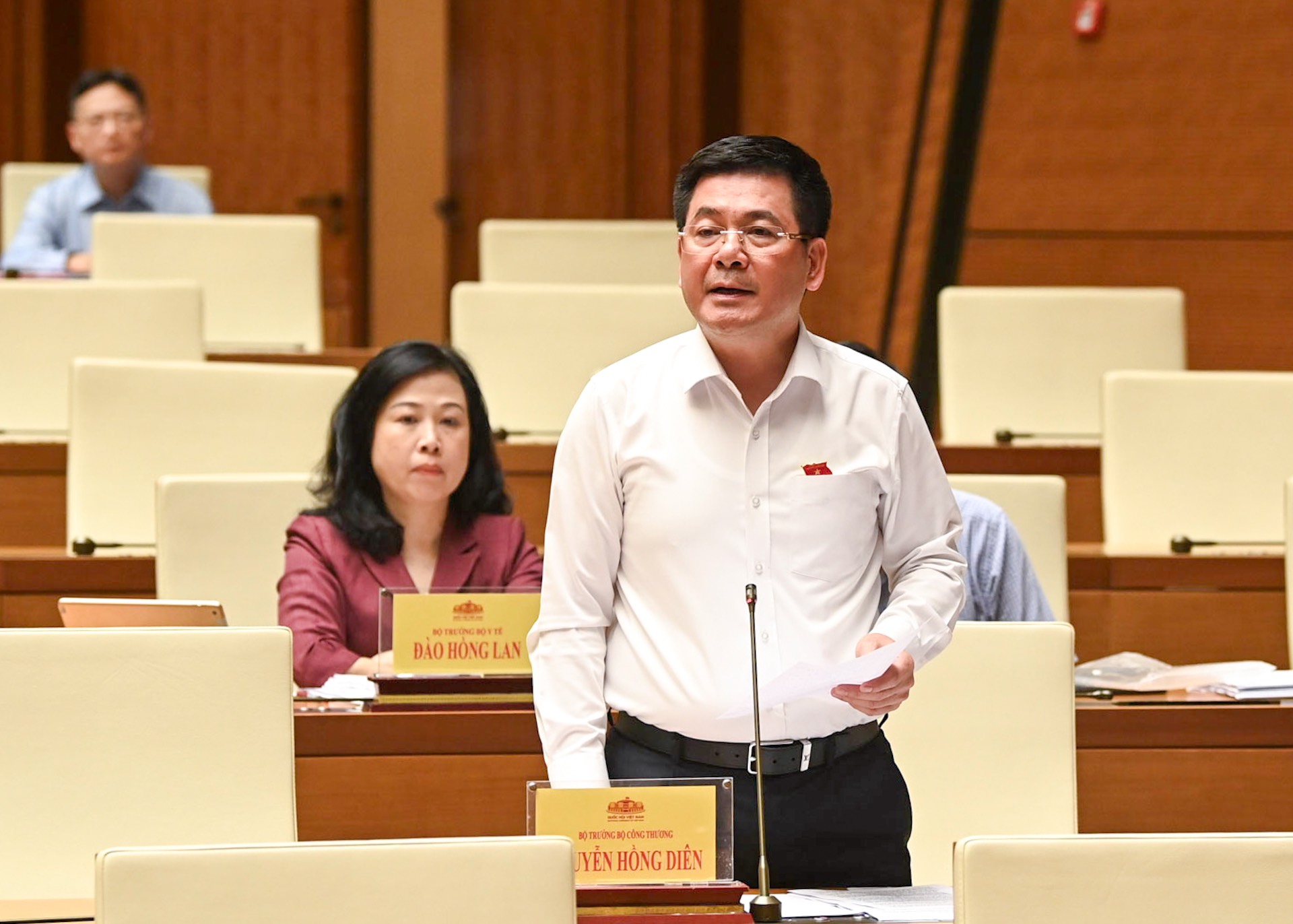According to the Minister of Industry and Trade, the total installed capacity in Power Development Plan VIII approved by the Government is 150,489MW (not including exports, the existing rooftop solar power, and renewable energy to produce new energies), an increase of 21,000MW compared to the total installed capacity approved in the revised Power Development Plan VII (130,000MW).
Of which, the solar power installed capacity is 12,836MW (excluding the existing rooftop solar capacity), accounting for 8.5% of the total installed capacity of the system, including 10,236MW of concentrated solar power, 2,600MW of self-production and self-consumption solar power; the installed capacity of onshore wind power is 21,880MW, accounting for 14.5%; offshore wind power 6,000 MW, accounting for 4%; biomass power and waste power 2,270MW, accounting for 1.5%.

Minister of Industry and Trade Nguyen Hong Dien
Thus, the total installed capacity of renewable energy sources, excluding hydropower, accounts for 28.5% of the total system. This is a very large proportion, even compared to developed countries with high technology levels, smart grids, and high-level energy storage systems. According to statistics, if these countries do not have regional grid interconnection, the proportion of renewable energy will only fluctuate around 20%.
According to Minister Nguyen Hong Dien, under Vietnam's current technological infrastructure, to achieve the above goals, attention must be paid to considering investment in developing smart grids and energy storage systems. At the same time, the electricity market development should be promoted on three levels: competitive generation, competitive wholesale, and competitive retail. In addition, the retail electricity price schedule should be considered to have more flexibility.
Regarding electricity prices, currently, thermal and hydropower plants are being dispatched according to regulations on electricity system operation and the competitive wholesale electricity market.
With a high penetration of renewable energy in the system, to back up renewable energy when these depend heavily on weather conditions, it is necessary to build up a pricing mechanism for new power sources such as energy storage batteries, and pumped-storage hydropower which are highly flexible power sources. In addition, the development of self-production and self-consumption solar power systems in high-load areas should be encouraged.
Thus, to exploit renewable energy potentials, especially wind power and solar power, it is necessary to promote investment activities in self-consumed, off-grid solar power, stimulating the development of electricity storage systems, and smart grids, building DPPA mechanisms and promoting a competitive electricity market.
"Currently, the Ministry of Industry and Trade has been submitting to the Government to promulgate a decree on rooftop solar power development. When the Government’s policy for the decree development is released based on recommendations of the Ministry of Justice, the Ministry of Industry and Trade will take actions as per the process" - Minister Nguyen Hong Dien said.
The Ministry of Industry and Trade is also submitting to the Government for promulgation of a DPPA mechanism based on the resolution of the National Assembly Standing Committee.
The Minister of Industry and Trade also shared that the development of rooftop solar power is not limited in capacity - that is in the context of future technology development and rooftop solar power investors not putting pressure on the power transmission system. Because, without stably running baseload power sources, no country can develop solar energy indefinitely.
evn.com.vn
Share